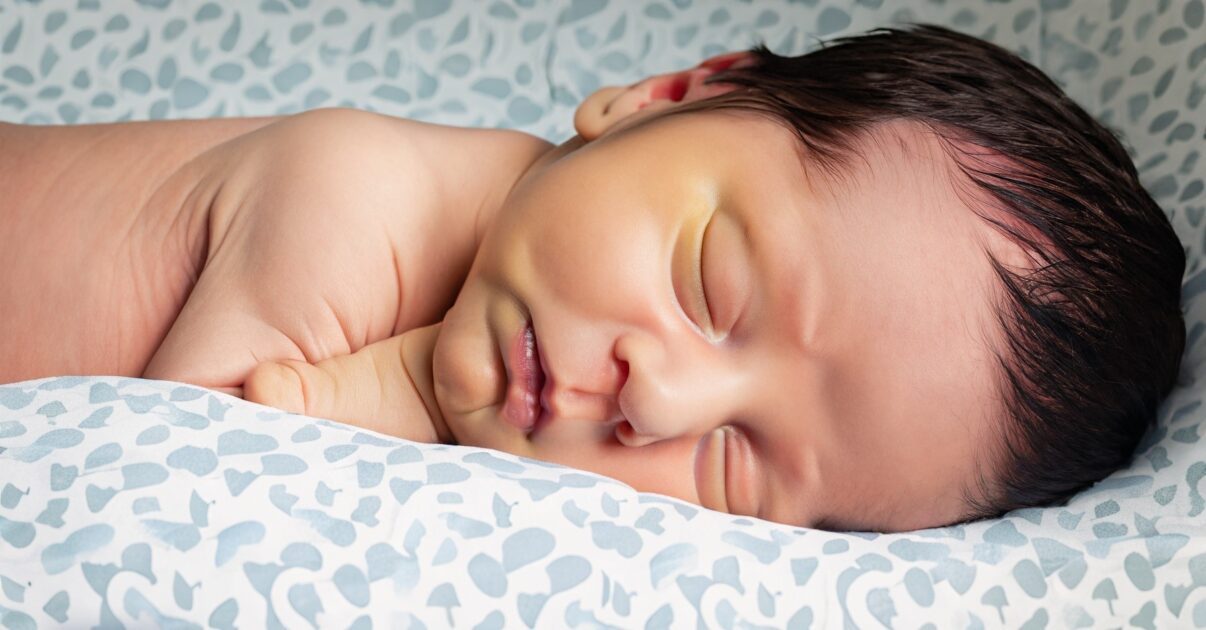Establishing Healthy Sleep Patterns for Newborns is an important milestone in welcoming a new addition to your family. While the arrival of a newborn is a joyful occasion, it also presents challenges, particularly in the realm of sleep. Sleepless nights quickly become a common occurrence for new parents. However, prioritizing the development of healthy sleep patterns in your newborn is not only crucial for their well-being but also for your own sanity. In this comprehensive guide, we will carefully navigate you through the essential steps to help your baby establish and maintain healthy sleep habits right from the very beginning.
Table of Contents
- Understanding Newborn Sleep Needs
- Creating a Sleep-Friendly Environment
- Establishing a Consistent Sleep Routine
- Feeding and Sleep
- The Importance of Day-Night Differentiation
- Safe Sleep Guidelines
- Sleep Training Techniques
- Dealing with Sleep Regressions
- Monitoring Your Baby’s Sleep Patterns
- When to Seek Professional Help
- Managing Sleep as Parents
- The Role of White Noise
- Co-Sleeping vs. Separate Sleep Spaces
- Transitioning to a Crib
- Conclusion: A Restful Night’s Sleep for the Whole Family
Understanding Newborn Sleep Needs
Newborns sleep often, but their sleep is often fragmented, and they have shorter sleep cycles than adults. A newborn baby sleeps about 14 to 17 hours a day. However, it’s important to note that their sleep patterns vary, and they wake up every few hours for feeding and diaper changes.
Creating a Sleep-Friendly Environment
A conducive sleep environment is essential for your newborn. Ensure that the room is dark, quiet, and at a comfortable temperature. Use blackout curtains to block out light during daytime naps.
Establishing a Consistent Sleep Routine
Consistency is critical to helping your baby sleep well. Create a bedtime routine with activities like a warm bath, gentle lullabies, and reading a bedtime story.
Feeding and Sleep
Breastfeeding or bottle-feeding can have an impact on your baby’s sleep. Learn how to balance feeding with rest and avoid constantly feeding your baby to sleep.
The Importance of Day-Night Differentiation
Newborns often have their days and nights mixed up. Encourage daytime wakefulness by exposing your baby to natural light and keeping activities lively during the day.
Safe Sleep Guidelines
Follow safe sleep guidelines to reduce the risk of Sudden Infant Death Syndrome (SIDS). Always place your baby on their back to sleep and avoid loose bedding and toys in the crib.
Sleep Training Techniques
When your baby is old enough, you can explore gentle sleep training methods to help them learn to fall asleep independently. Be patient and consistent.
Dealing with Sleep Regressions
Sleep regressions are expected during the first year of life. Learn how to identify them and navigate through these temporary disruptions in your baby’s sleep.
Monitoring Your Baby’s Sleep Patterns
Keeping track of your baby’s sleep can provide valuable insights. Many apps and tools help you monitor sleep duration and patterns.
When to Seek Professional Help
If your baby continues to have severe sleep issues, consult a pediatrician or a sleep specialist for guidance and support.
Managing Sleep as Parents
Making sure you take care of yourself is super important! To tackle sleep deprivation, it’s a great idea to split nighttime duties with your partner and catch some Z’s during the day when you can. This can help you feel better and get more done; it’s a great way to strengthen your relationships with the people around you.
The Role of White Noise
Some babies find white noise soothing. Experiment with white noise machines or apps to see if they help your baby sleep better.
Co-Sleeping vs. Separate Sleep Spaces
Decide whether you want to co-sleep with your baby or have them sleep in a separate crib or bassinet. Both options have their benefits and considerations.
Transitioning to a Crib
As your baby grows, you must transition them to a crib. Gradual adjustments can help ease this transition.
Conclusion: A Restful Night’s Sleep for the Whole Family
Establishing healthy sleep patterns for your newborn requires patience, consistency, and a deep understanding of your baby’s unique needs. Following the tips and techniques outlined in this guide can help your baby sleep better, ensuring a restful night’s sleep for the entire family.
FAQs
- What is normal baby sleep? Newborns sleep about 14 to 17 hours a day, but their sleep is often fragmented with frequent waking for feeding and diaper changes.
- How can I improve my baby’s sleep? To improve your baby’s sleep, create a consistent sleep routine, maintain a sleep-friendly environment, and consider gentle sleep training methods when appropriate.
- How long do babies sleep at night? Newborns may sleep in shorter stretches at night, typically 2-4 hours at a time, gradually lengthening as they grow.
How much sleep do babies need by age? Sleep needs vary by age. Newborns need the most sleep at 14-17 hours, which gradually decreases as they get older. Consult your pediatrician for specific recommendations based on your baby’s age.
Author
-

Dr. Sajid is a highly respected and experienced pediatrician who specializes in treating children of all ages. With a background in medicine and a passion for working with kids, Dr. Sajid has dedicated his career to helping young patients lead healthy and happy lives. He is particularly skilled in treating common childhood illnesses and developmental issues, such as allergies, asthma, and behavioral problems. Dr. Sajid is known for his gentle and compassionate approach to working with kids, and he is committed to making each visit to the doctor a positive and comfortable experience for his patients. His expertise in the field of pediatrics, combined with his warm and caring demeanor, make Dr. Sajid an excellent choice for families in need of a trustworthy and skilled kids doctor.
Drsajid@gmail.com Dr Sajid


